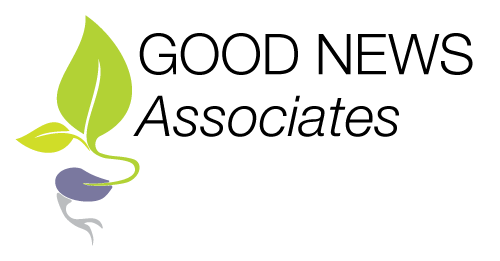On November 12, I sorted through my red 22-inch carry-on wheelie bag for the final time. I was off to Ohio to co-facilitate a session of Quaker Quest, and from there to Ireland, for a project for which I volunteer. In addition to checking on the suitcase and the passport, there was just one more task that day — to go for a second mammogram. I had no concern about it — I had been called back before, and I knew that suspicious areas sometimes showed up that would not be present on the second x-ray.
The day turned out differently. Instead of walking out, I was moved along a different track: a meeting with an oncology nurse, and then one with a radiologist who pointed to a screen and said that it looked like cancer to him. The biopsy was scheduled for December 1, on the tiny window of a day between arriving back from Ireland and flying to Oregon.
The Oregon plans included being on retreat with the other Good News Associates, and spending time with my younger daughter and other close friends. The phone call came during the Good News Associates’ retreat, probably the very best setting. The results were inconclusive. Two experts had given differing opinions, so a third expert had been called on. I remained calm, but I had a real sense of my life being in two chapters: before and after November 12.I was calm, but also not my usual self. I was unable to write and send out my usual chatty Christmas letter. Somehow there was nothing I could say. Life was on hold. I began shedding some of my volunteer responsibilities. I asked what, of those, I was still led to do, and what I should let go of, in a kind of inner and outer de-cluttering. I could make no plans for 2015 until this chapter was behind me. Who knew how long treatment would last, and how exhausting it would be?
Surgery was scheduled for December 31. My surgeon was an upbeat young woman who looked younger than my daughters. As we age, surgeons, as well as police officers, get younger, apparently. December 31 was also the date when my time of service as presiding clerk of the New Association of Friends was to end. The incoming clerk drove up to be with me for the surgery. I appreciated that very much, and I was grateful for all the prayers that were holding me, and the medical staff.
A week later the results were through; the tumor was not malignant, so no further treatment was needed. The crisis, the time when my life turned upside down, lasted just two months, and yet the effects will remain, in a positive way, forever.
I have nothing to say about theodicy — why bad things happen to good people, or why good things happen to bad people. It’s a mystery. But I became particularly aware of the good people I knew who were anticipating a bleaker journey and outcome. I hope my compassion has increased.
Just as I was once a member of the community of adult children of aging and dying parents, I joined the community of people whose life as they knew it had suddenly stopped. Of people wearing gowns in the waiting room of the surgery center. Later, I joined the community of those with a kind of survivor guilt. We were resuming life as we had planned it, while others faced months of treatment, and in some cases, an early death.
It’s a privilege live in a country with good health care facilities — from skilled professionals, to diagnostic equipment, to an infrastructure of care. Given the inequalities of access to that system in the USA, it was a particular privilege, being on Medicare, to be able to go through the procedures in confidence that I would not lose my home. I am more aware of these inequities now.
Instead of being the one taking charge, I had to ask for, and accept help. Having been the daily shoveler of our shared driveway, I had to explain my post-operative predicament to my neighbors, and ask them to clear the snow. Reciprocity is good.
Some people disappear when you have a crisis, unable, for whatever reason, to handle the situation. Others step forward and are there, just when you need them. I realized how important it is to have practical and emotional support — I think of it as the ministry of showing up — and I am going to try to do more of that.
The Taizé chant, Nada te turbe, based on the words of St Teresa of Avila, went through my head often as I went on this journey. I paraphrase the words as:
Don’t let anything trouble you, don’t be afraid,
Everything passes away, but God does not change.
Be patient. Whoever has God lacks nothing.
God alone is sufficient.
Composer: Jacques Berthier. Copyright © 1986, 1991 by Ateliers et Presses de Taizé, F-71250 Taizé Community, France. Published in North America by GIA Publications, Inc., 7404 S. Mason Ave., Chicago, IL 60638
Being stopped in your tracks can, in an odd way, be a gift. I’m not suggesting that illness is a gift, but for me, the shock had a way of heightening my awareness of choices, priorities, friendship — and the preciousness of each day.
 Margaret Fraser joined Friends in Britain, where she taught Management at the University of Brighton. She has served as Dean of Pendle Hill and Executive Secretary of Friends World Committee for Consultation, Section of the Americas. She now lives in Michigan.
Margaret Fraser joined Friends in Britain, where she taught Management at the University of Brighton. She has served as Dean of Pendle Hill and Executive Secretary of Friends World Committee for Consultation, Section of the Americas. She now lives in Michigan.

